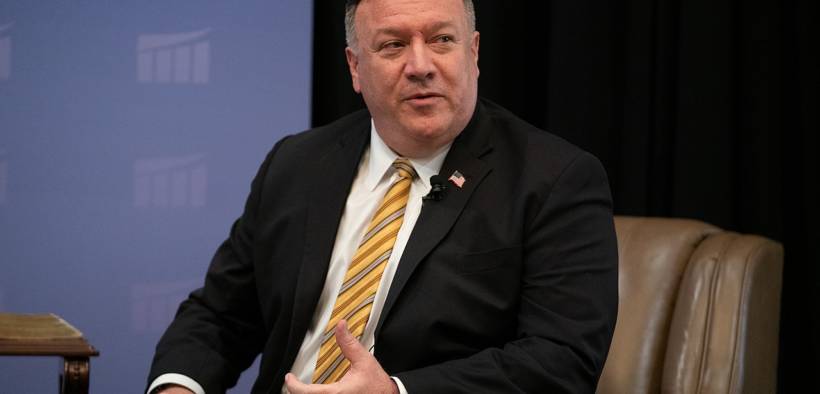Pompeo Orders Closure of Chinese Consulate in Houston

“The order to close the consulate, one of six China operates in the US in addition to its Washington embassy, came directly from Secretary of State Mike Pompeo.”
In the latest escalation of tensions with Beijing, the Trump administration on Wednesday ordered the closure of the Chinese consulate in Houston. Beijing warned it will respond, but China’s Foreign Ministry has yet to layout specific actions it will take in the latest series of tit-for-tat manuevers between the two states.
The order to close the consulate, one of six China operates in the US in addition to its Washington embassy, came directly from Secretary of State Mike Pompeo, Reuters reported.
Behave, Or Else.
On a visit to Denmark, reporters asked Pompeo why Washington chose to issue the directive Wednesday. While the US and China have traded barbs since President Donald Trump assumed office, the latest action appeared unprompted, causing questions to rise.
When Pompeo was asked “Why now?” he refrained from offering a definitive answer.
“The point that this has been going on a long time makes our point. President Trump has said ‘Enough. We’re not going to allow this to continue to happen,’” Pompeo said. “We’re setting out clear expectations for how the Chinese Communist Party is going to behave.”
The secretary cited China’s long campaign of perceived anti-American policies, CNN reported.
“When they don’t [behave] we’re going to take actions to protect the American people, their security, national security, and also our economy and jobs.”
Beijing “has engaged for years in massive illegal spying and influence operations,” a State Department spokesman said. The decision, whether coincidental or intentional, came while Pompeo was currying favor with European leaders to stand with the US against China, CNN reported.
Coincidences or Retaliation?
Pompeo was scheduled to speak on the administration’s China policy Thursday at the Richard Nixon Museum and Library in California, rounding out a China-centric week.
The decision to force the Chinese consulate to close also came on the heels of federal indictments of two alleged Chinese hackers, according to CNN. US prosecutors allege the hackers attempted to siphon COVID-19 research from American medical institutions.
China hurriedly denied the allegations and pointed the finger at the US for “engaging in the largest cyberattacks [sic] activities in the world.”
Congressional Leaders Support Decision
The administration’s order to close the Chinese consulate received support from top-ranking Republicans in Congress. Acting Chair of the Senate Intelligence Committee, Sen. Marco Rubio of Florida, called the Houston consulate an espionage hub, The Houston Chronicle reported.
“China’s consulate in Houston is not a diplomatic facility. It is the central node of the Communist Party’s vast network of spies & influence operations in the United States,” Rubio tweeted. “Now that building must close & the spies have 72 hours to leave or face arrest. This needed to happen.”
House Minority Leader Kevin McCarthy called the move “the right call.”
“The Chinese Communist Party cannot be trusted. They have attempted to hack vaccine research and now we find out they were conducting espionage and stealing intellectual property out of their consulate in Houston,” McCarthy tweeted.
CBS News footage depicted consulate workers burning documents in preparation for their expulsion from the building. The practice of burning documents itself should not be interpreted as suspicious, however, as it is an common procedure for disposing of confidential documents when there is insufficient time or means to transport them.















